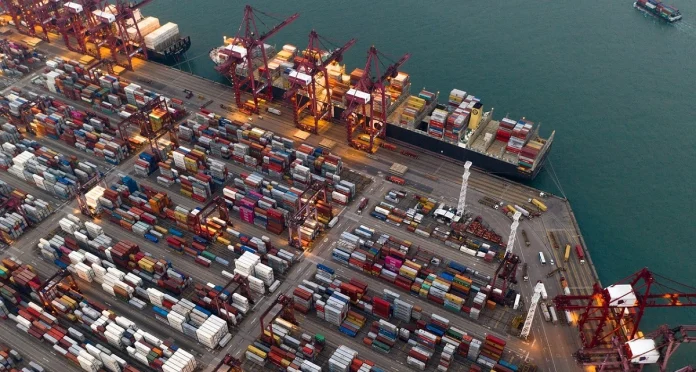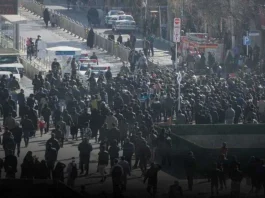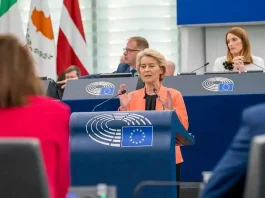In an era where climate change poses an existential threat, the intersection of trade policies and environmental justice has never been more critical. As temperatures rise and extreme weather events intensify, the Global South—home to billions vulnerable to these impacts—stands at a crossroads. Rather than viewing trade as a barrier, imagine it as a bridge: a catalyst for fair access to green technologies, sustainable investments, and thriving markets.
By 2025, with global emissions still climbing despite Paris Agreement pledges, the urgency is palpable. The UN estimates that developing countries need $5-7 trillion annually by 2030 for climate adaptation and mitigation—yet current trade dynamics often exacerbate inequalities instead of bridging them. Let’s dive into the challenges, opportunities, and actionable proposals shaping this transformative agenda.
How Securitization and Protectionist Policies Stifle Green Progress
Today’s trade landscape is increasingly “securitized,” where geopolitical rivalries—fueled by major powers like the US, China, and EU—prioritize national interests over global cooperation. This trend disrupts green supply chains, limiting access to essential technologies like solar panels, batteries, and wind turbines for low-carbon transitions. In 2025, supply chain disruptions have surged, with nearly 25% of companies reporting over 20 incidents, hindering material sourcing for renewable projects. Tariffs and export controls, often weaponized in trade wars, reshape flows: for instance, new 2025 tariffs are forcing rerouting of critical minerals from Africa and Latin America, inflating costs by up to 15-20% for emerging economies.
A stark example is the European Union’s Carbon Border Adjustment Mechanism (CBAM), rolled out in phases since 2023 and fully operational by 2026. Designed to level the playing field by imposing carbon taxes on high-emission imports, CBAM aims to cut EU emissions by 55% by 2030. However, for developing countries, it’s a double-edged sword. African nations, reliant on exporting cement, iron, steel, and fertilizers to the EU, face steep hurdles. The European Commission forecasts a €5.6-6 billion drop in African exports annually, equating to a 1-2% GDP hit for some economies. Broader modeling from the London School of Economics suggests potential losses up to $25 billion in GDP per year across Africa, exacerbating poverty and slowing green industrialization.
Critics in the Global South, including South Africa and India, argue CBAM violates Paris Agreement principles of “common but differentiated responsibilities,” where richer nations bear more burden. Without compensatory mechanisms, it risks reinforcing imbalances: OECD countries see minimal output declines (0.5-1%), while non-OECD nations suffer 2-3% drops, per recent studies. In China, CBAM could slash exports by 1-2%, prompting retaliatory measures and further fragmenting global trade. Geopolitical tensions, like US-China rivalries over rare earths, compound this, with 2025 export bans disrupting 30% of global green tech supply chains.
Yet, these challenges highlight untapped potential: by addressing them head-on, trade can become a tool for empowerment rather than exclusion.
Just Energy Transitions Through Equitable Trade Rules
A just energy transition isn’t just about swapping fossil fuels for renewables—it’s about ensuring no one is left behind. Trade rules play a pivotal role in fostering equitable development, enabling access to finance, tech transfer, and markets. For the Global South, this means policies that prioritize “people-centered” pathways, putting workers, communities, and ecosystems at the core.
Consider green finance: Policies like China’s Green Financing Policies (GFP) have boosted supply chain resilience by 10-15% in pilot regions, offering models for others. In Africa, initiatives under the African Continental Free Trade Area (AfCFTA) could generate $450 billion in income gains by 2035, partly through sustainable trade corridors for renewables. Canada’s doubled climate finance to $5.3 billion (2021-2026) supports such efforts, funding tech access in developing nations.
Trade can also mitigate CBAM’s sting. Developing countries are responding innovatively: India explores domestic carbon pricing to retain revenues, while South Africa pushes for WTO exemptions. Tools like the World Bank’s exposure measurement framework help nations quantify risks and negotiate better terms. Ultimately, equitable rules could reduce global emissions by 5-10% more effectively by integrating Southern perspectives.
Proposals for a New Trade Agenda
To bridge ambition and justice, experts advocate a refreshed trade agenda tailored for climate-resilient development. Here are key proposals, grounded in 2025 discussions:
Reform Global Tax and Debt Systems: Advocate for progressive taxes on high emitters to fund Southern transitions, potentially unlocking $500 billion annually. Debt relief tied to green investments could free up $100 billion for adaptation.
Enhance Tech Transfer and IP Flexibility: Under WTO, relax intellectual property rules for green tech, enabling affordable solar and EV production in the South. BRICS nations propose financing models emphasizing social justice, targeting $1 trillion in climate funds by 2030.
People-Centered Safeguards: Frameworks like the UN’s Just Transition principles ensure worker rights, collective bargaining, and community involvement in energy shifts. The Just Transitions Work Programme (JTWP) at COP29 pushes for metrics tracking equity.
Regional Integration Boost: Expand agreements like AfCFTA with green clauses, fostering intra-South trade in renewables—projected to add 10 million jobs by 2030. Initiatives from Ford Foundation and KAIROS emphasize commons expansion and real security.
Counter Securitization: Promote multilateral forums to de-escalate trade wars, with upgraded pacts like ASEAN’s including green supply chain chapters. COP29 calls for market transparency and equity in finance.These proposals, echoed in BRICS and UN panels, aim to make trade a force for inclusion.
The Role of Major Powers and International Frameworks
Major powers must lead by example. The EU could offset CBAM with revenue recycling—redirecting tariffs to African green funds. The US, through Just Energy Transition Partnerships (JETPs), has committed billions but faces criticism for ceding regulatory control; reforms could emphasize local utilities. WTO reforms, as urged in SDG Action reports, need to embed sustainability, ensuring fair rules amid rising tariffs.
The Paris Agreement remains the bedrock, but integration with trade pacts like CPTPP or RCEP could amplify impacts. As Dejusticia notes, Southern-led development strategies are key to resolving tensions between ambition and action.
Toward a Sustainable Future:
Reimagining trade for climate justice isn’t optional—it’s imperative. By adopting these proposals, we can turn potential pitfalls into prosperity, ensuring developing countries lead the green revolution. Policymakers, businesses, and citizens must advocate for equitable rules now.




